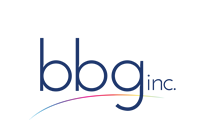We’ve seen quite a spike recently in the number of claims issues clients’ employees are reporting related to the coverage of colonoscopies. The problem almost always centers on billing for the service and payment of the claim. Many employees report that they are being forced to pay out-of-pocket for colonoscopies that they believe should be fully covered under preventive care benefits.
This billing issue was a common occurrence a few years ago. It appears to be rearing its frustrating head again.
We’re finding in many cases the employees are correct and they are being incorrectly billed. They successfully file an appeal or a grievance with their respective insurance carrier. The claim gets re-processed and eventually paid or reimbursed by the carrier.
However, the appeals process can be frustrating. It almost certainly is time consuming. And, often it requires assistance and cooperation from other parties; the provider’s office for example.
Here are some basic guidelines from the American Gastroenterological Association (AGA) to help understand coverage and claims distinctions. These distinctions typically drive how colonoscopies are billed, who pays for it, and how much. Knowing these distinctions and clarifying up front can save time, money, and preclude unnecessary hassles that are guaranteed to raise one’s blood pressure.
· Screening or Early Detection Colonoscopy
If the initial intent before the procedure is to perform a routine screening colonoscopy on an individual without GI symptoms then it’s considered a Screening Colonoscopy and is usually a covered preventive care benefit for most plans (see: Affordable Care Act). There is no cost share for members who have this benefit embedded in their plan.
· Diagnostic Colonoscopy
A Diagnostic Colonoscopy is performed because the patient experiences or reports some type of GI related symptoms or there is some other related abnormal finding or sign. Copayments, coinsurance and deductibles based on the member’s plan typically apply to diagnostic colonoscopies. Most members should expect to pay something out-of-pocket for this service.
Whether or not a patient has GI symptoms prior to the procedure is the biggest determinant in how you are billed for a colonoscopy. The Diagnosis Code (ICD-9) the provider uses for billing is key to determining coverage and claims payment.
If you know you are going to undergo a screening colonoscopy, clarify upfront with your provider that they are going to bill for services based on a preventive diagnosis code as the primary diagnosis code (ie. ICD-9 Code V76.51).
Addressing this on the front end before the test is performed, can save you time, save you money, and also save you from a bunch of frustration on the back end.
